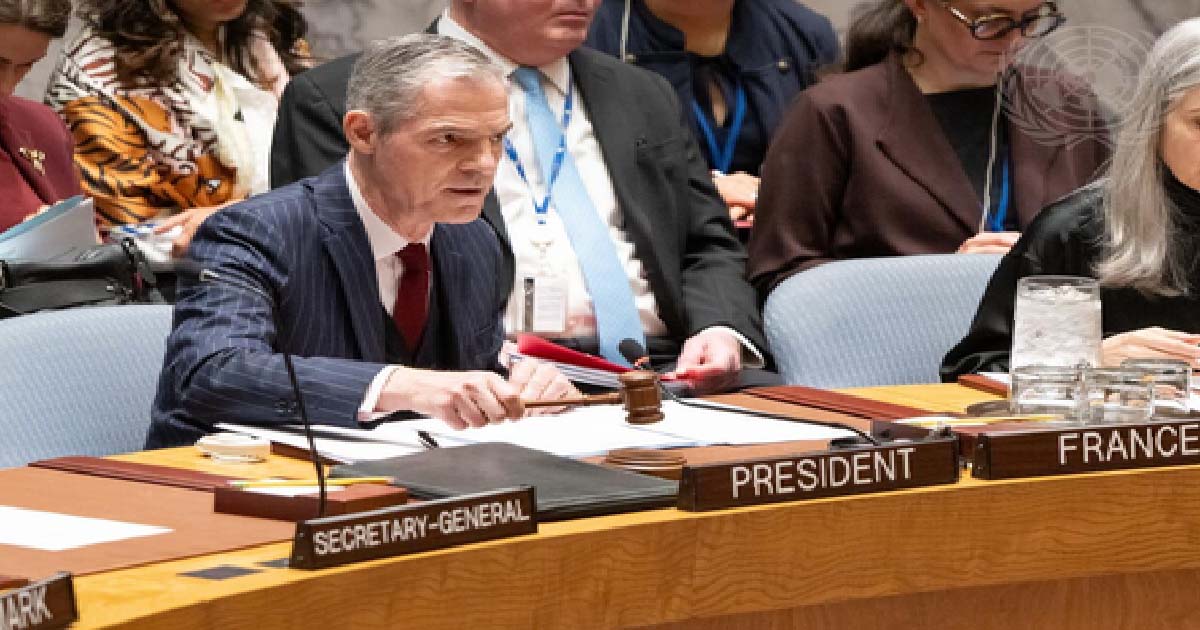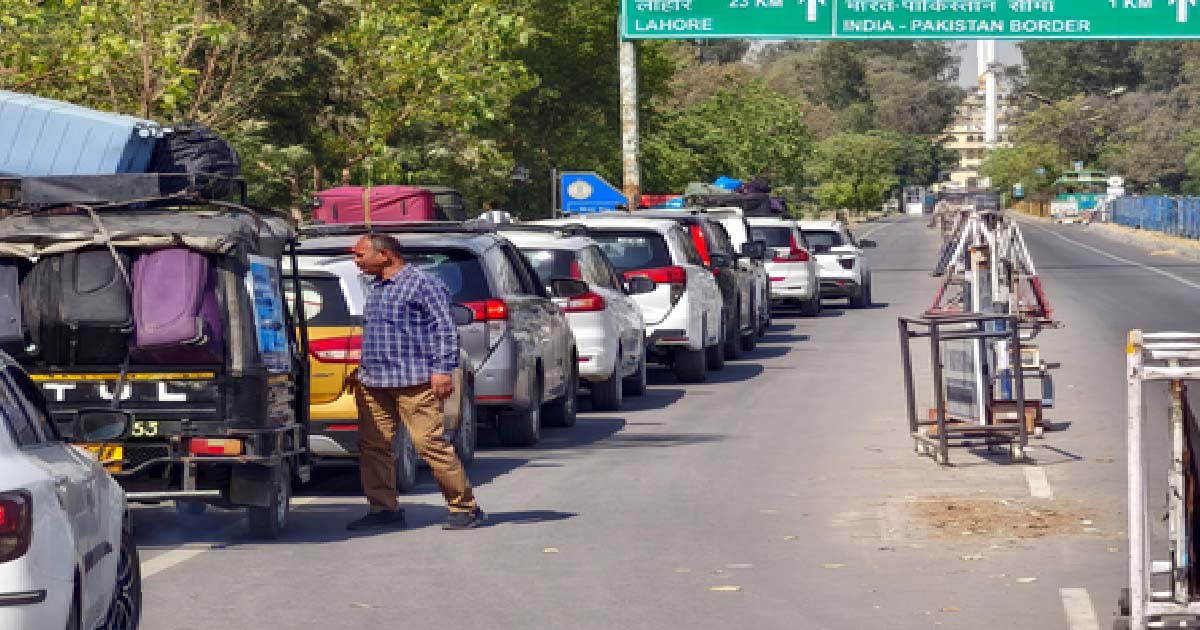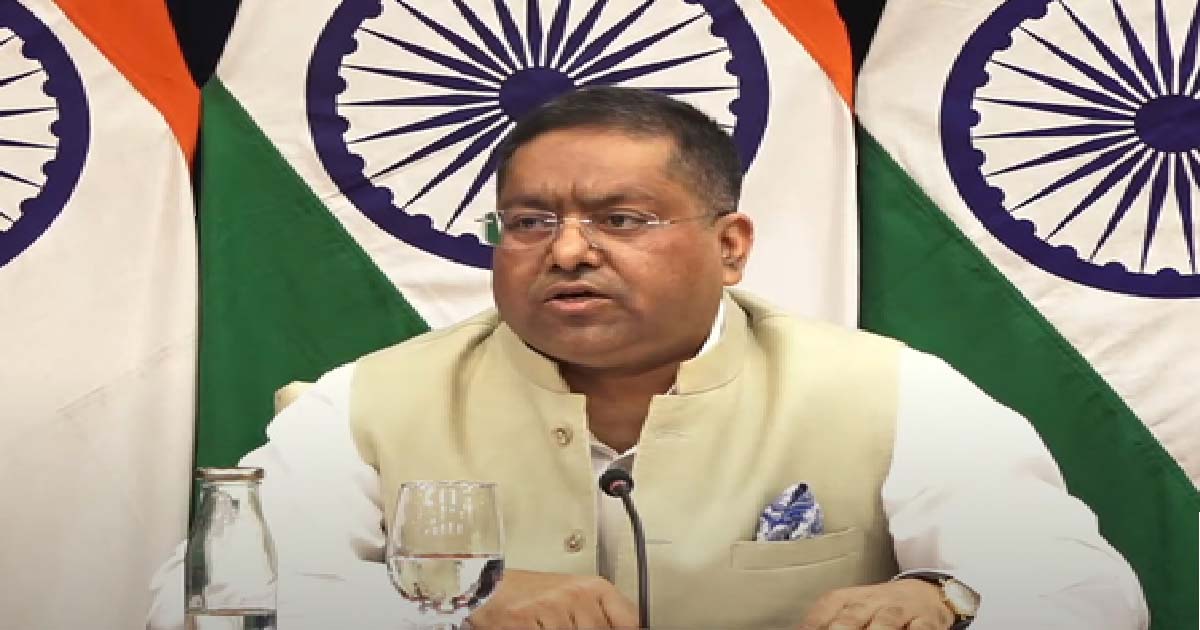International
1st T20I: Suryakumar, Rohit guide India to five-wicket win over New Zealand
Outstanding knocks from Rohit Sharma (48), Suryakumar Yadav (62) and a timely boundary by Rishabh Pant (17*) helped India register a five-wicket win over New Zealand in a thrilling T20 encounter, taking 1-0 lead in the three-match series at the Sawai Mansingh Stadium here on Wednesday.
Earlier, fantastic half-centuries by Martin Guptill (70 off 42) and Mark Chapman (63 off 50) powered New Zealand to 164-6 in 20 overs. And while chasing a competitive total, openers Rohit and KL Rahul got India off to a flying start. The duo played some beautiful shots and took India to 50/0 in 5 overs.
Mitchell Santner gave New Zealand the first breakthrough in the 6th over by removing Rahul, who didn’t find the timing and was caught at square leg.
Thereafter, Suryakumar Yadav who came in at number three joined forces with his skipper to add another 59 runs for the second wicket. Both Suryakumar and Rohit looked in great touch and it seemed that they would finish the game for India but that didn’t happen.
Rohit was dismissed by his Mumbai teammate Trent Boult in the 14th over while Surya, who went on to hit his third T20I fifty, got out at a time when India were cruising at 144 for 3 in the 17th over. His dismissal gave New Zealand a glimmer of hope and they managed to bring the equation between runs required and balls left to within touching distance.
Things got too close for comfort in the final three overs with 21 runs needed off 18 balls for India as Shreyas Iyer and debutant Venkatesh Iyer got out for 5 and 4, respectively. But, Pant (17 not out off 17 balls) held his nerve and managed to get the team over the line, with 2 balls to spare.
Earlier, batting first, New Zealand were off to a bad start as they lost the wicket of Daryl Mitchell in the first over. An outstanding in-swinger from Bhuvneshwar Kumar found the gap between Mitchell’s bat and pad before crashing into the stumps.
The wicket brought Mark Chapman to middle and he along with Martin Guptill revived the New Zealand’s innings. The duo punished the bad deliveries to keep the scoreboard ticking, taking Kiwis to 41/1 at the end of the powerplay.
Both batters efficiently rotated the strike and didn’t go for big hits between 6 to 10 overs. On the other hand, Indian bowlers struggled to find a breakthrough and conceded few occasional boundaries, as New Zealand reached 65/1 at the halfway mark of the innings.
With ten overs to go, Guptill shifted gears and targeted Mohammed Siraj, scoring 16 runs in his over. In the next over, Chapman scored his impressive half-century by slamming Axar Patel’s full-toss for a huge six over deep square. Deepak Chahar was hit for 10 runs as Chapman and Guptill brought their 100-run partnership, taking Black Caps to 106/1 after 13 overs.
India were in desperate need of a breakthrough as Ashwin provided that by getting rid of the dangerous Chapman, who was looking for a big shot but the ball crashed into the stumps. Glenn Phillips came to bat next but he couldn’t do much and was dismissed by off-spinner in the same over, leaving Kiwis in some sort of trouble.
However, the quick wickets did very little to deter Guptill as he kept on playing his lofted shots and scored his 19th T20I fifty, first against the Men in Blue in the shortest format. His partner on the other side, Tim Seifert was dropped on 7 by Axar Patel in the over bowled by Bhuvneshwar.
With Guptill set, Black Caps were eyeing a big total but Chahar dismissed the attacking opener in the 18th over. Guptill mistimed his shot while trying to go over mid-wicket as Shreyas Iyer came running in and took a good low catch.
From there, Indian bowlers didn’t give any freebies to Tim Seifert (12) and Rachin Ravindra (7) and Mitchell Santner (4) and pulled things back in the death overs as New posted 164-6 in 20 overs.
Bhuvneshwar Kumar (2/24) and Ravichandran Ashwin (2/23) were the main wicket-takers for India.
Brief scores; New Zealand: 164/6 in 20 overs (Martin Guptill 70, Mark Chapman 63; Ravichandran Ashwin (2/23) lost to India 166/5 in 19.4 overs (Suryakumar Yadav 62, Rohit Sharma 48; Trent Boult (2/31)
International
UNSC asks all countries to cooperate in bringing Pahalgam terrorists, backers to justice

United Nations, April 26: The Security Council has “condemned in the strongest terms” the Pahalgam terrorist attack and urged all countries to cooperate in bringing all those involved in the massacre, to justice.
The members of the Security Council “stressed that those responsible for these killings should be held accountable, and urged all States, in accordance with their obligations under international law and relevant Security Council resolutions, to cooperate actively with all relevant authorities in this regard”, Council President Jerome Bonnafont said in a Press statement on Friday.
A front organisation of the Pakistan-based terrorist group Laskhar-e-Tayiba has owned responsibility for the attack.
The statement issued by France’s Permanent Representative Bonnafont who is the Council president for this month, took a broad view of those involved in the massacre by including the financiers and sponsors.
“The members of the Security Council underlined the need to hold perpetrators, organisers, financiers and sponsors of this reprehensible act of terrorism accountable and bring them to justice”, the statement said.
Pakistan, which is on the Council as an elected member, went along with the other members in endorsing the statement, committing itself – at least on paper – to bringing those involved to justice.
A Press statement expresses the consensus of the Council and carries moral authority, while not being legally binding like a resolution.
The statement also shot down the attempts by some in Pakistan to give terrorist attacks a veneer of justification.
“The members of the Security Council reiterated that any acts of terrorism are criminal and unjustifiable, regardless of their motivation, wherever, whenever and by whomsoever committed”, it said.
The Council members “reaffirmed the need for all States to combat by all means, in accordance with the Charter of the United Nations and other obligations under international law, including international human rights law, international refugee law and international humanitarian law, threats to international peace and security caused by terrorist acts”, the statement added.
Earlier, the spokesperson for Secretary-General Antonio Guterres hinted that a diplomatic effort by him may be afoot.
Asked by a reporter, if Guterres would speak to leaders of India and Pakistan, Spokesperson Stephane Dujarric said that he hoped to have something to share on that later.
Reiterating the condemnation of the terrorist attacks, Dujarric said, “We again urge both the Government of India and the Government of Pakistan to exercise maximum restraint to ensure the situation does not deteriorate further.”
When a reporter asserted that the possibility that “two nuclear countries” might “go to war” was getting insufficient attention, Dujarric said, “I don’t agree with your comment. We are paying very close attention to the situation between India and Pakistan.”
International
Wagah-Attari border closure leaves several families in limbo

Islamabad, April 25: Pakistan and India’s decision to shut down the Wagah-Attari border crossing after the deadly Pahalgam terror attack has forced several citizens from both countries to cut short their visit and rush back home.
On Thursday, after both countries announced closure of border crossing and gave a deadline for citizens to leave for their respective countries, at least 28 Pakistanis nationals returned from India while 105 Indian citizens in Pakistan crossed over into India.
A Hindu family from Balochistan’s Sibi was reportedly denied entry into India after the closure of border crossing.
“We were on our way to Indore in Madhya Pradesh to attend a wedding. Seven members of our family were excited to join our relatives in India and take part in the celebrations. But upon reaching Wagah, we learned that the border had been sealed. We will spend the night at Dera Sahib in Lahore and head back home tomorrow,” said Akshay Kumar.
Meanwhile, a Sikh family from India, in Pakistan to attend a wedding, decided to leave for India immediately.
“We had come to Pakistan for a wedding. While the ceremony took place, several important rituals remained. Once we heard the border was closed, we decided to return immediately,” said Raminder Singh, an Indian national.
A Hindu family from Ghotki in Pakistan’s Sindh province, now residing in New Delhi, was visiting Pakistan for the last two months to meet their relatives. However, they are now unsure about getting permission to return to India.
“There are five of us, including my young son and daughter, uncle and aunt. We all hold Pakistani passports and were granted No Obligation to Return to India (NORI) certificate by India. But uncertainty looms now, said a family member named Indira.
“Families with cross-border ties often bear the brunt of rising tensions between the two neighbours. With tensions between Pakistan and India once again on the rise, human connections across borders are becoming the first casualty,” said Asif Memood, a Lahore-based journalist.
“The closure of the Wagah-Attari border has left many families in limbo, uncertain when they will next reunite with their loved ones,” he added.
International
Murder of Hindu leader: India slams Bangladesh, says killing follows pattern of systematic persecution of Hindu minorities

New Delhi, April 19: India on Saturday issued a sharp condemnation of the abduction and brutal killing of Bhabesh Chandra Roy, a prominent Hindu community leader in northern Bangladesh, calling it part of a “pattern of systematic persecution” of minorities under the country’s interim government.
Ministry of External Affairs (MEA) spokesperson Randhir Jaiswal voiced India’s grave concern, stating that the incident reflects an alarming trend of targetted violence against Hindus and other minority groups in Bangladesh.
“We have noted with distress the abduction and brutal killing of Shri Bhabesh Chandra Roy, a Hindu minority leader in Bangladesh. This killing follows a pattern of systematic persecution of Hindu minorities under the interim government, even as the perpetrators of previous such events roam with impunity,” Jaiswal said in a post on social media platform X.
He added, “We condemn this incident and once again remind the interim government to live up to its responsibility of protecting all minorities, including Hindus, without inventing excuses or making distinctions.”
India has previously expressed similar concerns over rising attacks on minorities in Bangladesh, but this latest incident has drawn particular attention due to Roy’s prominence in the Hindu community.
Roy, who served as the Vice-President of the Biral unit of the Bangladesh Puja Udjapan Parishad, was abducted from his residence in Dinajpur district on Thursday evening. According to police and family accounts, he received a phone call around 4:30 p.m., after which four unidentified men arrived on motorcycles and forcibly took him to Narabari village. He was reportedly assaulted and later found unconscious. He was rushed to a hospital in Dinajpur, where he was declared dead on arrival. His wife, Shantana Roy believes the attackers used the call to confirm his location before carrying out the abduction.
Opposition leaders in India also slammed the shocking incident in the neighbouring country.
Congress President Mallikarjun Kharge highlighted that religious minorities, especially Hindus, are being persecuted in Bangladesh.
“Attacks on other religious minorities are also continuing. Recently, the Chief Advisor of Bangladesh made a very condemnable and disappointing comment about the northeastern states of India. The persecution of religious minorities in Bangladesh, human rights violations, and the attempt to erase the memories of the 1971 Liberation War are efforts to weaken the relationship between India and Bangladesh. From 1971 till today, India has always wished for peace and prosperity for all the people of Bangladesh. This is in the best interest of the subcontinent,” he said.
-

 Crime3 years ago
Crime3 years agoClass 10 student jumps to death in Jaipur
-

 Maharashtra1 year ago
Maharashtra1 year agoMumbai Local Train Update: Central Railway’s New Timetable Comes Into Effect; Check Full List Of Revised Timings & Stations
-

 Maharashtra1 year ago
Maharashtra1 year agoMumbai To Go Toll-Free Tonight! Maharashtra Govt Announces Complete Toll Waiver For Light Motor Vehicles At All 5 Entry Points Of City
-

 Maharashtra1 year ago
Maharashtra1 year agoFalse photo of Imtiaz Jaleel’s rally, exposing the fooling conspiracy
-

 National News1 year ago
National News1 year agoMinistry of Railways rolls out Special Drive 4.0 with focus on digitisation, cleanliness, inclusiveness and grievance redressal
-

 Maharashtra12 months ago
Maharashtra12 months agoMaharashtra Elections 2024: Mumbai Metro & BEST Services Extended Till Midnight On Voting Day
-

 National News1 year ago
National News1 year agoJ&K: 4 Jawans Killed, 28 Injured After Bus Carrying BSF Personnel For Poll Duty Falls Into Gorge In Budgam; Terrifying Visuals Surface
-

 Crime1 year ago
Crime1 year agoBaba Siddique Murder: Mumbai Police Unable To Get Lawrence Bishnoi Custody Due To Home Ministry Order, Says Report






















